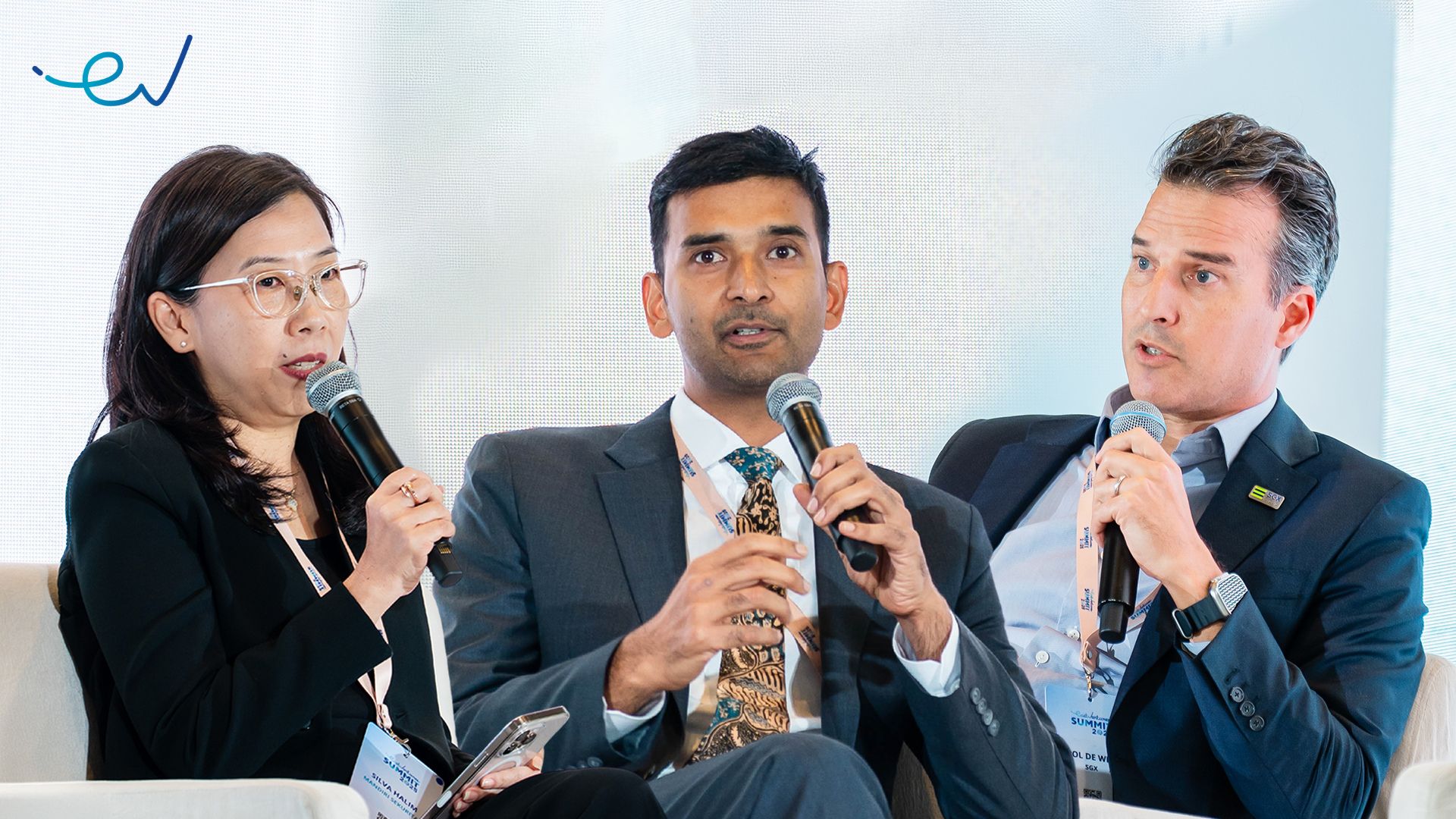In the past few years, the Southeast Asian IPO (Initial Public Offering) market has been more dynamic than ever. Though slowing down in 2024 with relatively lower capital raised—US$2.8 billion decline from 2023, Southeast Asia saw a whopping 122 IPOs in 2024 alone.
Many contribute to this—global economic uncertainties, currency fluctuations, and geopolitical shifts, among others. In H1 2025, the region saw 48 IPOs raising US$1.4 billion, down from 66 IPOs in the same period last year.
Despite that, Malaysia is making headlines as an IPO hotspot in the region, leading in terms of total IPOs, IPO funds raised, and IPO market capitalization, according to Deloitte. Indonesia places second.
However, tech startup IPOs were drawing less coverage. Nine out of ten top Indonesian IPOs by funds raised last year were from the consumer and energy industries, according to the report.
Nevertheless, East Ventures firmly believes that successful tech IPOs are also essential for building momentum across the broader ecosystem and ultimately contributing to the vibrant IPO ecosystem in Southeast Asia.
As macroeconomic conditions are poised to rebound in 2025, positive momentum is gathering pace. Companies focused on strong fundamentals are achieving increased revenue scale and profitability, making them increasingly attractive to public markets.
From East Ventures’ point of view, going public is a strategic next step for a company: a way to unlock further capital, access a broader investor base, and enhance credibility through transparency and good corporate governance. See it as a door that opens to the next stages of fundraising.
East Ventures, the pioneering and leading VC (venture capital) firm for tech companies in Southeast Asia, believes the companies we foster should be long-lasting and sustainable.
We see IPO as a milestone in a company’s longer-term scaling journey that signifies its maturity and consistency in executing its business model. In a proper cycle, after going public, the company must continue to operate and remain sustainable.
When to consider local or cross-border exchange
When preparing for an IPO, one of the first strategic decisions a company must make is to identify the most suitable capital market or listing zone, stock exchange, and segment to support its objectives.
Some regional companies might start exploring cross-border opportunities amidst today’s economic shifts. But heed this: listing on a local market has multiple pros, too.
East Ventures always believes that for a company to thrive globally, it must first win its local market share.
For brands built domestically, backed by domestic investors, serving local consumers with products made of locally sourced materials, listing domestically offers strong strategic advantages.
At the recent East Ventures Summit 2025, Sanjog Kusumwal, Executive Director & Team Head of Equity Capital Markets at DBS, also echoed this sentiment. “If you are a regional champion, a company whose brand and products are well known in the region, you benefit from that familiarity from the ASEAN-based investors vis-a-vis overseas investors.”

He further elaborated that the local market context is pivotal for investors to appreciate, compared to international investors who might not be as familiar with the business context, regulatory environment, and nuances of operating in different ASEAN countries.
Local exchanges offer a distinct advantage: the investor base possesses a deeper appreciation of a company’s brand, business model and risk profile, enabling companies to remain connected to their customer base and domestic retail investors, as they build their profile through a public listing.
Conversely, cross-border exchanges can become a viable route for companies with a growing business beyond the domestic market. Listing in an Asian cross-border exchange such as Singapore, provides for easy access to global and regional investors while maintaining a connection to the Asian customer base.
Investors’ pivotal role on the road to IPO
Before looking at it from a venture capital firm perspective, how does a company prepare for an IPO?
A company’s first steps and early considerations should include forming a strong internal team with a deep understanding of its financial, legal, and operational aspects.
Then, the capital market supporting professions need to be appointed: underwriters, public accountants, legal consultants, and more.
To learn more about proper IPO preparations in Indonesia, read IDX’s Guide to Going Public, or in Singapore, read SGX’s guide on How to Get Listed.
Beyond financing, private capital providers and investors play an essential role in guiding companies toward IPO readiness—a process that requires a long-term strategic approach rather than a rush to the exit.
It is imperative for investors to instill the discipline and structure of a public company—a much-needed “housekeeping,” one might say—to ensure financial records are compliant and audited for the required three-year period.
Furthermore, building a strong corporate governance is essential, including installing professional management, establishing a strong board of directors/commissioners, and forming key committees.
With these supporting pillars cemented, investors can shape the company’s “compelling equity story and investment thesis that will resonate with public investors,” Silva Halim, Chief Capital Market Officer of Mandiri Sekuritas, noted.
In the same panel, SGX Group’s Senior Managing Director, Head of Global Sales and Origination, Pol de Win, also advised that the company’s long-term goal should be a positive market reception and sustained aftermarket performance, which requires setting expectations that “set you up for success in the long run.”
Case study: Fore’s IPO
East Ventures’ own incubated company, PT Fore Kopi Indonesia Tbk (Fore), officially debuted on the IDX (Indonesia Stock Exchange) on 14 April 2025.
It is a given that East Ventures took an active role in supporting its IPO readiness. As a venture capital firm backing Fore since day one, East Ventures serves as a strategic advisor to the company and acts as a decision-making checkpoint. This ensures that the company is well-prepared for the path to public listing.

As dedicated advisors, we conduct rigorous due diligence and review key documents to ensure compliance, transparency, and legitimacy. East Ventures also facilitates essential connections by linking relevant underwriters and legal advisors, and offers valuable benchmarking insights from several local case studies to guide expectations and strategies.
Additionally, East Ventures actively assists Fore in financial communications to all stakeholders. We assisted Fore to translate the company’s complex financial data and solid business fundamentals into a strong corporate narrative.
By delivering clear, transparent, and consistent messages, companies can build trust and confidence among stakeholders, demonstrating not only strong financial performance but also long-term resilience and credibility.
This comprehensive involvement helps Fore navigate complexities and maximizes its chances of a successful public offering.
Driven by our conviction in the founder’s vision and ability to scale a differentiated brand, combined with the company’s traction and early signs of a path to profitability, we proceeded with the IPO despite the challenging climate at the time.
Fore’s public offering attracted 114,873 new retail investors and was oversubscribed by 200.63 times from the IDX e-IPO system.
This positive traction then propelled Fore further in its success story. What was once an industry’s skepticism, Fore is now emerging and making headlines as a notable tech startup IPO in Southeast Asia, particularly Indonesia.
The exceptional success and incredible value created by East Ventures through Fore’s IPO have also been acknowledged by the SVCA Awards 2025: VC Deal of the Year.
Signs for an IPO rebound in 2025
Despite a globally challenging period for new listings, confidence is returning to Southeast Asia’s public markets, with experts signaling the start of a new, more vibrant era.
As the region’s digital economy matures, a new wave of IPO-ready companies is emerging and poised for their public debuts. Just as Pol de Win remarked, the coming years are set to be “Southeast Asia’s time in the sun.”
This impending rebound is catalyzed by powerful structural and policy initiatives designed to boost liquidity and investor appetite.
Moreover, the market is stabilizing with more predictable tariff conditions, and not to mention, the growing, financially-literate middle class is picking up momentum.
With these foundational supports coming together to complete the puzzle, the pathway to activating the region’s full potential is stronger.
The responsibility now lies with founders and investors to prepare early, set realistic expectations, and leverage their home-ground advantages to successfully transition to the public markets. We look forward to more tech startups in SEA (Southeast Asia) making their way to the stock exchange.







